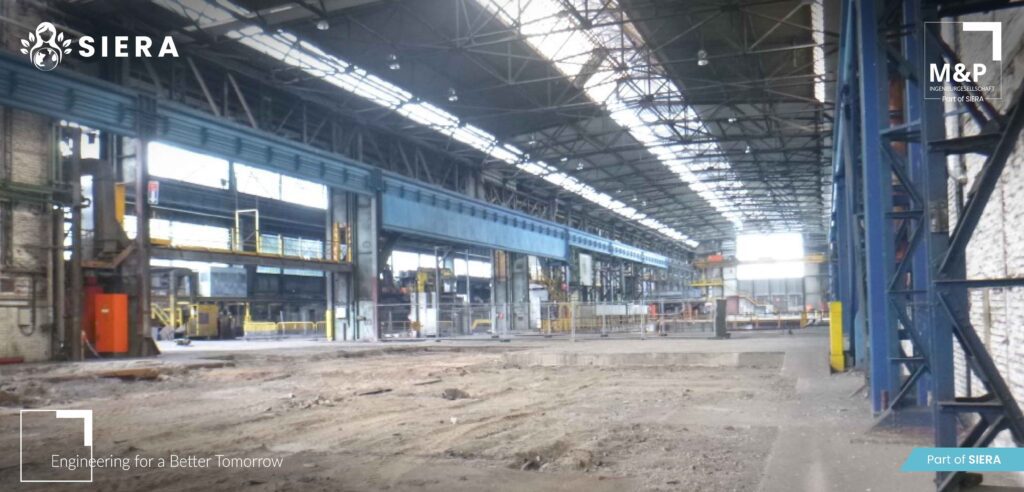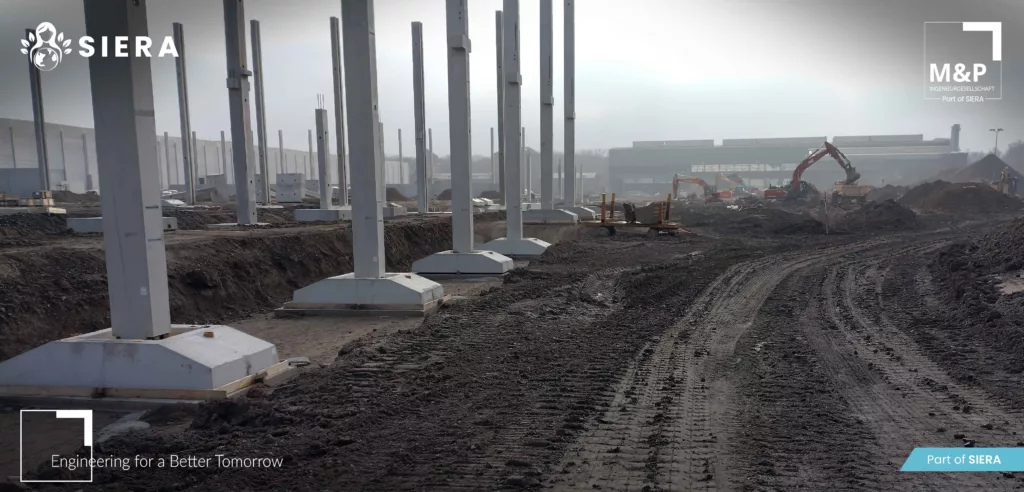Introduction
M&P Ingenieurgesellschaft West – a member of the SIERA Alliance – is supporting Frasers International Amsterdam in revitalizing the former Vallourec site in Düsseldorf. The project combines sustainable land use with efficient space management and actively contributes to the transformation of industrial sites into modern logistics locations.
Project Overview
| Project Data | Details |
| Client | Frasers International Amsterdam Timeframe |
| Timeframe | 2022 – 2025 |
| Contract value for engineering services | Approx. €280,000 |
| Fields of activity | Contaminated site investigation, soil management, demolition, external monitoring of earthworks |
Reason
Frasers International planned to renovate the former site of the Vallourec pipe factory. The plans included the construction of a modern logistics center and 30,000 m² of ancillary facilities on an area of 65,000 m².
Due to decades of commercial use, the site was heavily contaminated with PAHs, VOCs, metal compounds, and mineral oil. As part of the project development, the contamination situation was assessed and a comprehensive action plan was drawn up.
The development of the approximately 160,000 m² industrial and commercial site required extensive earthworks involving around 85,000 m³ of soil. In addition, 105,000 m³ of material and 23,600 t of construction waste were transported and reused for the production of base layers.

Scope of work and services
- Contaminated site and building fabric investigations
- Contract award and soil management
- Expert supervision of earthworks
- Acceptance inspections and final documentation
These measures served to completely clear the construction site and prepare the land for the planned new development.
Execution and implementation
Based on the results of the technical investigations, a concept of measures was developed which formed the basis for the contract documents for demolition and earthworks.
Through targeted tendering and consistent quality monitoring, the construction site was cleared efficiently and sustainably.
In the areas that were not remediated, the risk to groundwater was ruled out through ongoing monitoring. All materials were separated according to contamination classes, documented, and disposed of properly.
This structured approach enabled the safe and resource-efficient development of the site.
Focus on sustainability
The project is a prime example of the sustainable engineering practices of M&P Ingenieurgesellschaft West, a member of the SIERA Alliance.
The ecological footprint of the project is significantly reduced through the reuse of building materials, targeted soil monitoring, and the minimization of waste disposal volumes.
Conclusion
With a clear focus on environmental compatibility, safety, and efficiency, this project demonstrates how sustainable urban development and engineering can go hand in hand.
M&P Ingenieurgesellschaft West—a member of the SIERA Alliance—is successfully putting its claim of “Engineering for a Better Tomorrow” into practice.
Learn more about our projects in the areas of soil management, contaminated site remediation, and sustainable land use: 👉 Mehr erfahren auf unserer Website












